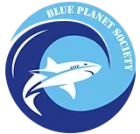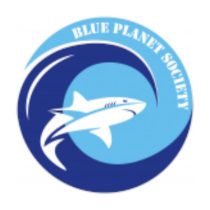At a time when the Australian conservation movement faces great challenges, a protected seabird species in decline was consumed for novelty value on British reality TV show ‘I’m A Celebrity…Get Me Out Of Here!’ (Nov 22nd) in Murwillumbah, New South Wales.
Traditionally called “muttonbirds” by European settlers who exploited the birds for their oil, meat and feathers, the short-tailed shearwater has declined to less than a quarter of its original population, from 100 million to 23 million.
Short-tailed shearwaters are true “wanderers of the sea”, annually travelling tens of thousands of kilometres from feeding grounds in the Bering Sea to the southern coast of Australia, where the female lays her single egg in the southern spring. On arrival, they are literally starving and the east coast of Australia now regularly sees mass deaths of these birds, an occurrence which was previously seen only once in a decade.
Scientists are concerned that these events herald a much greater problem than storms, “This isn’t just a freak event… This is obviously an indication of a much wider problem” said Seabird Biologist Jennifer Lavers of Monash University in 2013 when the worst wrecks occurred. Dismissing claims that weather events were responsible for the frequency of wrecks, Jennifer believes that it is the failure of the birds to locate fish that is the cause stating “Heavy winds will do great things to them, but is it just the wind? I would say no”.
Short-tailed shearwaters are protected in all states of Australia except for Tasmania, where up to 100,000 of the birds are commercially and recreationally hunted under licence. In recent times some areas have been forced to close their five week long season after only one week due to reports of decimated populations. Other threats to the short-tailed shearwater are climate change, pollution (oil spills and plastic consumption) and bycatch as the birds are frequently found following trawlers for a meal.
With this in mind, why are celebrities eating a rapidly declining IUCN listed and protected seabird on a reality TV show? In the past ‘I’m A Celebrity’ producers have been fined for cruelty to animals and criticised by well-known wildlife presenter Chris Packham who stated “killing animals for exploitative entertainment is unacceptable”, a statement echoed by the RSPCA. ‘I’m A Celebrity’ trivialises Australian wildlife for its shock value; snakes, crocodiles, insects and other animals have all been killed and eaten for entertainment.
With half of all wildlife lost since 1970, conservation should be at the forefront in the minds of the general public. This is unlikely to happen until producers of primetime TV shows like ‘I’m A Celebrity’ use their hugely influential platform to educate us about, not demean nature. It’s the abused animals that should be taken out of this show, not the D-list celebrities.
Deborah Higgins is a Marine Biology student at Edith Cowan University, Western Australia. You can follow Deborah at @Oceanwarrior on Twitter or Sea No Plastic on Facebook.





